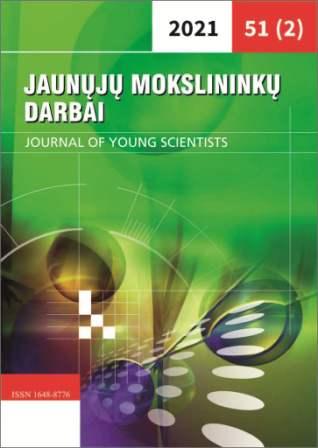Daugiabučio namo energinio efektyvumo pokyčio po modernizacijos analizė
Analysis of the Change in Energy Efficiency of an Apartment Building after Renovation
Author(s): Laima Skridailaitė, Edita Mockienė, Loreta KelpšienėSubject(s): Energy and Environmental Studies, Environmental and Energy policy
Published by: Vilniaus Universiteto Leidykla
Keywords: energy efficiency; renovation; apartment building;
Summary/Abstract: Most Lithuanian apartment buildings were built at different time points and are quite old. A large amount of fuel is needed to reach an average degree of thermal comfort. The goal of the long-term renovation strategy of Lithuania is to transform the current building fund, so that by 2050 its energy consumption would be efficient (with the possibility to transform the buildings to almost zero energy consumption) and independent of fossil fuel consumption as well as conforming to the principles of universal design. The article analyses a brickwork 12 storey apartment building, built in 1976, by evaluating its energy efficiency before and after the implementation of a set of modernisation measures. The energy consumption during the seven analysed seasons before the modernisation was on average ~ 108 kWh/m2, during the two seasons after ~ 38 kWh/m2. The actual increase in the building’s energy efficiency is 64.8 percent.
Journal: Jaunųjų mokslininkų darbai
- Issue Year: 2021
- Issue No: 2 (51)
- Page Range: 72-82
- Page Count: 11
- Language: Lithuanian

